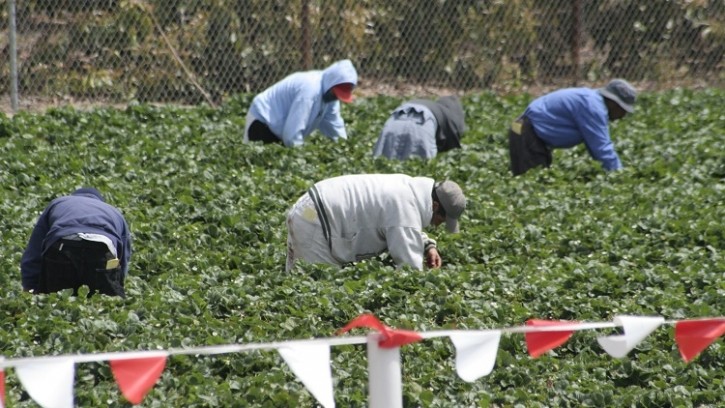News
Seasonal Workers Scheme needed to protect UK food security

The committee’s review of the Seasonal Workers Scheme (SWS) and Seasonal Workers Visa (SWV) was to assess their useability and impact for both employers and workers based in the rule under which they operate, the size and costs of the schemes, potential for exploitation and economic rationale.
It concluded that there was a clear need for the SWS in the short to medium term in order to maintain continuity in the UK’s food security. The potential for increased automation – and a potential to reduce the sector’s reliance on migrant labour – was a key consideration when assessing the necessity of the scheme in the long term.
“Ultimately, we believe that if the government intends to maintain current levels of domestic food production, then there is a clear need for a SWS in the short-to-medium term,” said MAC advisors. “This will provide certainty to businesses who operate in a sector unusually reliant on migrant labour, given the lack of domestic workers and the seasonal and rural nature of the work.”
“If the new government wishes to reduce the reliance on migrant labour whilst maintaining domestic food production and supporting rural economies in the long-term, then it must ensure there are appropriate policies and an environment for encouraging automation of these roles.”
The MAC identified five key recommendations for the Government on how to manage the scheme and steps it should take to improve workers rights and afford better flexibility for both employers and their staff.
Provide certainty around the future of the scheme
The MAC tasked the Government to provide certainty regarding the long-term future of the scheme, which could be achieved by confirming visa numbers and any further extension to the scheme on an annual basis. This would effectively give employers and businesses five years’ notice if the scheme is to close.
Allow for a more flexible visa
Greater flexibility would enable employers to plan more efficiently and workers to maximise their earnings without adding complexity to the route. The MAC advised a shortening of the current ‘cooling-off’ period for the current six months to three months and allowing workers to work any six-month period in an individual calendar year.
Fairer work and pay for workers
Recommendations were made for seasonal workers to be guaranteed at least two months’ pay in order to cover their costs in coming to the UK and reduce the risk that low-income workers are required to take. The Government also needs to make auto-enrolment into pension schemes clearer and simpler, so overseas can easily get a refund.
Tighten, communicate and enforce employee rights
Seasonal workers can be particularly susceptible to exploitation, with many working in isolated rural areas and speaking little to no English. While some employers are undertaking steps to improve the welfare of overseas workers, there is still a handful not doing so. Bodies in charge of seasonal workers’ rights need to take a more coordinate approach towards their welfare. Workers rights must also be clearly communicated to them in their own language.
Give consideration to the Employer Pays Principle
Seasonal Workers currently bear the cost of both their visa and their travel to and from the UK – costs which can be considerable, and which increase the risk of debt bondage. Further work is needed to investigate how these costs might be more equitably shared along the supply chain.















